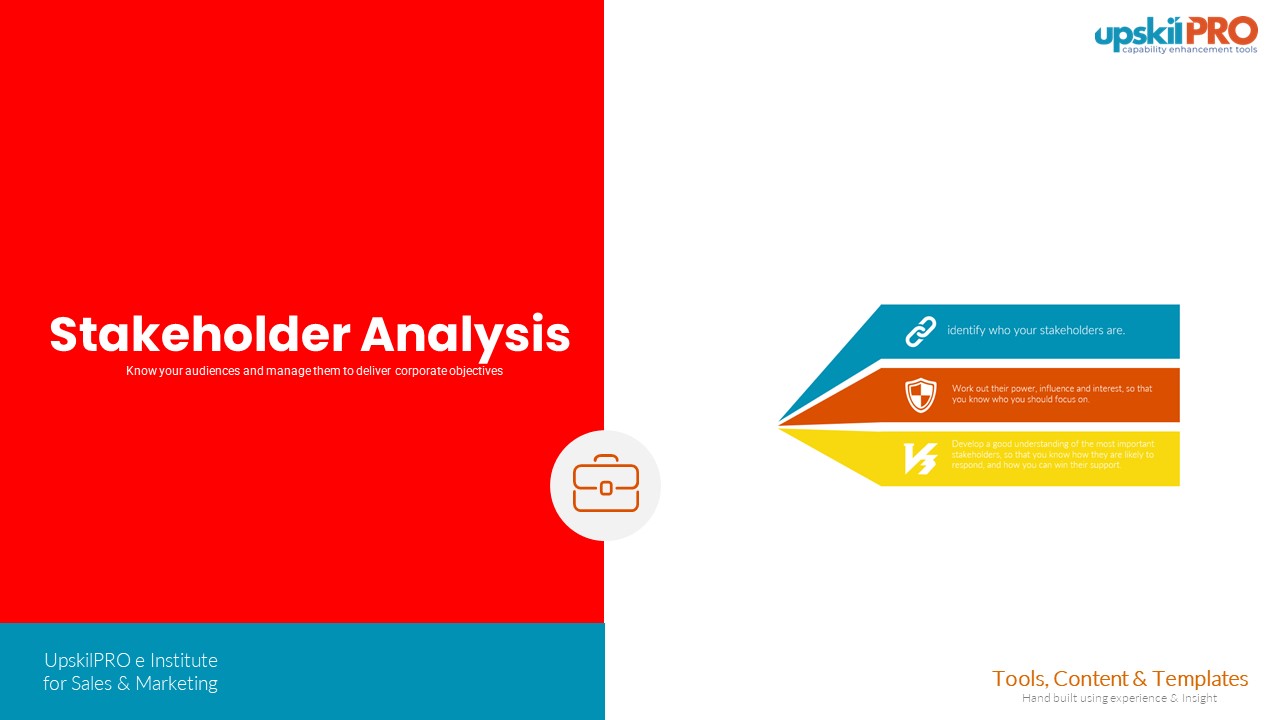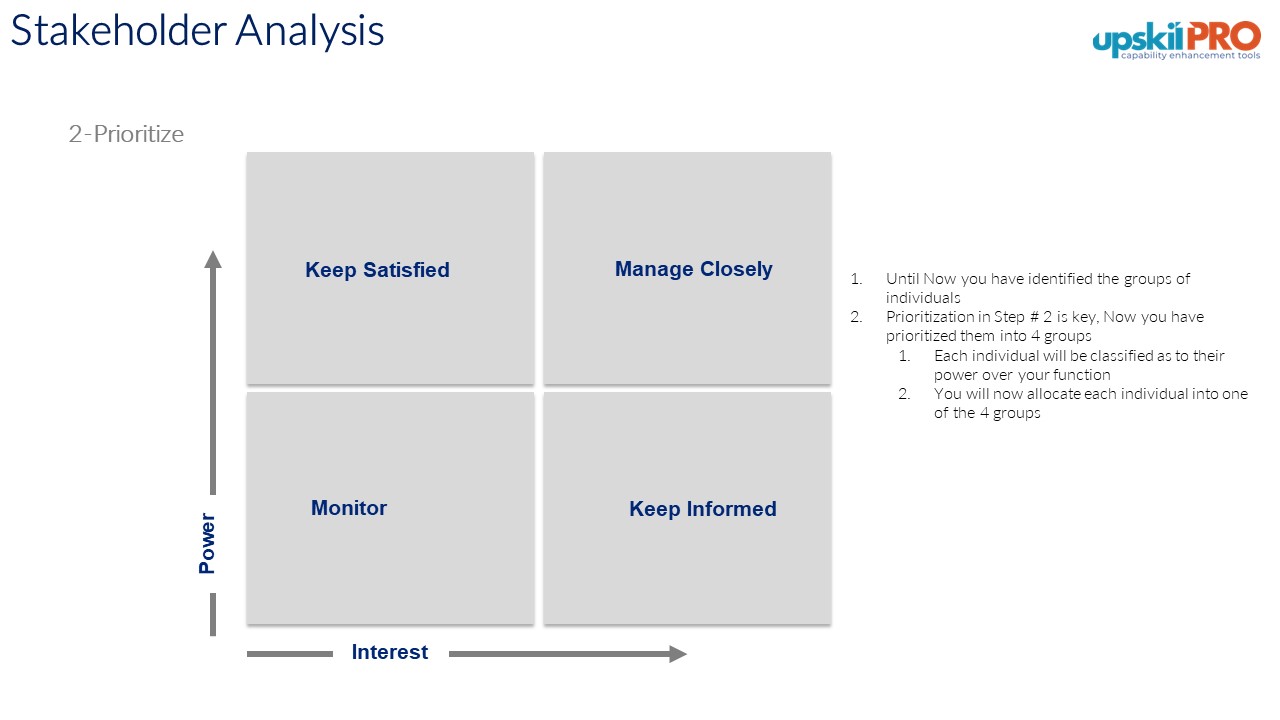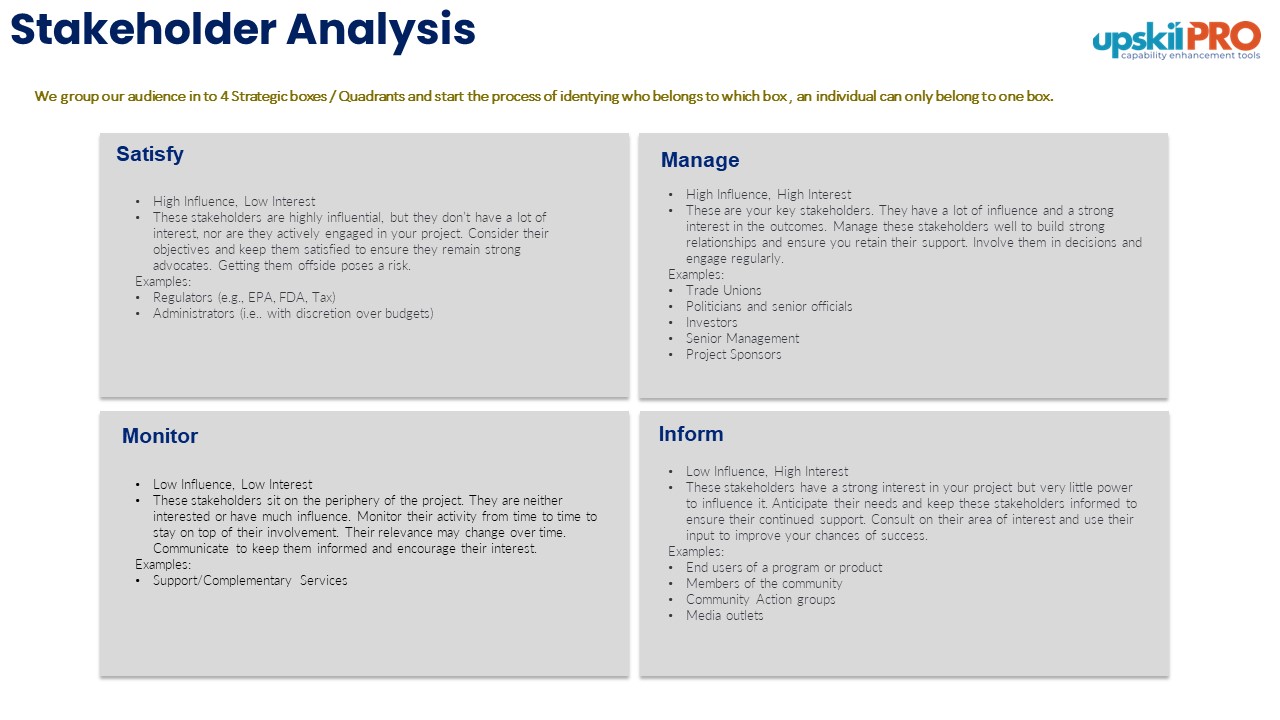Stakeholder Analysis
$0.00
Template Type:
- Analytics
- Business Reviews
- Business Intelligence
- Competitive Evaluation
- Competitive Intelligence
- Customer Acquisition
Categories:
- Strategic Tool
License:
User License Agreement
Reference Number:
6000-6022
Description:
The benefits- Enhanced Communication: Stakeholder analysis facilitates clear and targeted communication by identifying and understanding the needs, interests, and expectations of various stakeholders. This ensures that relevant information is shared, and concerns are addressed effectively.
- Improved Decision-Making: By comprehensively identifying and assessing stakeholders, organizations can make more informed decisions. Understanding stakeholder perspectives allows for better alignment of strategies and actions with the overall goals and expectations of the involved parties.
- Risk Management: Anticipating and addressing potential conflicts or objections from stakeholders helps in proactive risk management. Stakeholder analysis enables organizations to identify and mitigate risks associated with differing expectations or conflicting interests.
- Increased Stakeholder Engagement: Involving stakeholders in the decision-making process fosters a sense of ownership and commitment. Stakeholder analysis helps in tailoring engagement strategies, ensuring that stakeholders feel valued and are more likely to actively support the initiative.
- Strategic Planning: Stakeholder analysis contributes to the development of more effective strategic plans. By considering the interests and influence of various stakeholders, organizations can tailor their strategies to better meet the needs of both the business and its key stakeholders.
- Resource Allocation: Understanding the priorities and concerns of stakeholders allows for more efficient allocation of resources. Organizations can focus on initiatives that align with stakeholder expectations, maximizing the impact of resources and minimizing potential conflicts.
- Enhanced Reputation Management: Positive stakeholder relationships contribute to a positive organizational reputation. By addressing concerns and aligning actions with stakeholder expectations, organizations can build trust and goodwill, which is essential for long-term success.
- Regulatory Compliance: Identifying key stakeholders involved in or affected by regulatory processes is crucial for compliance. Stakeholder analysis ensures that organizations are aware of and responsive to regulatory expectations, reducing the risk of legal or compliance issues.
- Adaptability to Change: As circumstances evolve, stakeholder analysis helps organizations adapt to change by understanding how shifts in the external environment may impact different stakeholders. This adaptability is crucial for navigating dynamic business landscapes.
- Increased Project Success: Ultimately, stakeholder analysis contributes to project success by providing a structured approach to managing relationships, minimizing conflicts, and aligning efforts with the expectations of those who have a vested interest in the project's outcomes.





